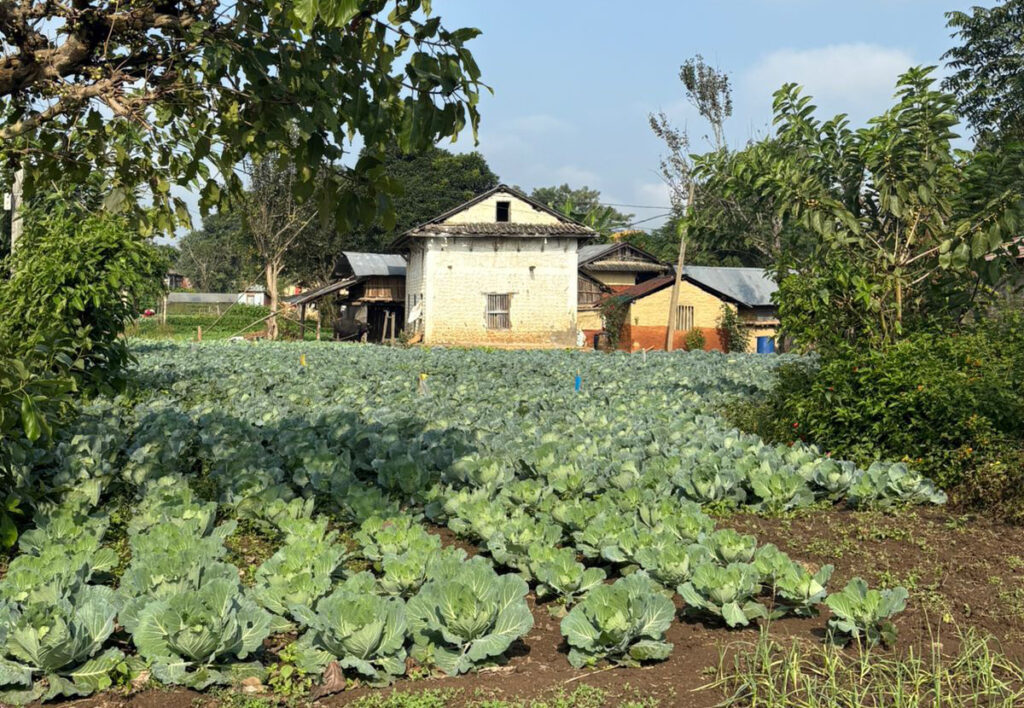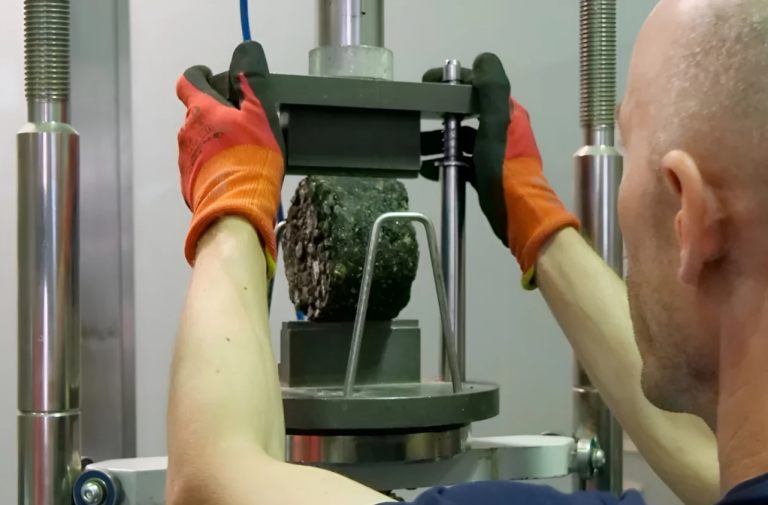In the serene village of Sadhikhola in Surkhet district, two brothers, Chandra Bahadur GC and Tek Bahadur Gharti, are rewriting the narratives of farming in Karnali province, mid-western Nepal. Originally from Surkhet, they travelled to India where they were migrant workers for many years. Their journey from labourers in India to pioneering organic farmers in Nepal epitomises resilience, innovation, and a profound commitment to their homeland.
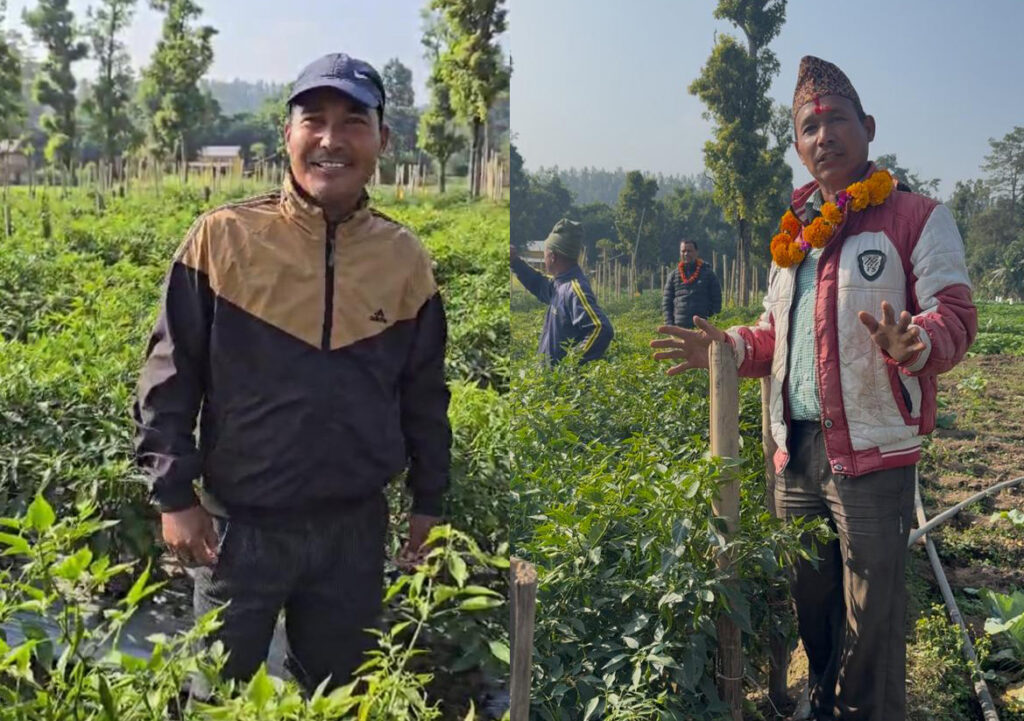
From labour to liberation
Tek Bahadur Gharti worked as a security guard, and Chandra Bahadur GC was an employee at a mineral water plant for 16 years in India. Then they decided to leave behind their gruelling lives abroad to pursue a dream rooted in the soil of their homeland. Longing for self-sufficiency and a connection to their roots, they returned to Nepal. Today, they cultivate 24 ropanis (131,424 sq. ft.) of fertile land, growing a variety of vegetables, including cauliflower, cabbage, broccoli, chilli, and brinjal or aubergine.
Recalling their struggles, Tek Bahadur shared, “We felt humiliated and insecure when we worked for others. It was not an ideal life. Now, working on our own farm gives us pride and dignity.”
The shift to organic farming
Initially, the brothers relied on synthetic pesticides, unaware of the long-term harm they caused. Frequent nausea, itching, and illness led them to question their methods, which can often be expensive. Through The Green Resilient Agriculture Productive Ecosystems (GRAPE) project, they were introduced to farming practices which are climate resilient, and nature-positive alternative solutions to the unwise use of chemicals. Though sceptical at first – vegetables grown without chemicals, often referred to as organic, don’t always look as visually appealing as their pesticide-grown counterparts – they persisted.
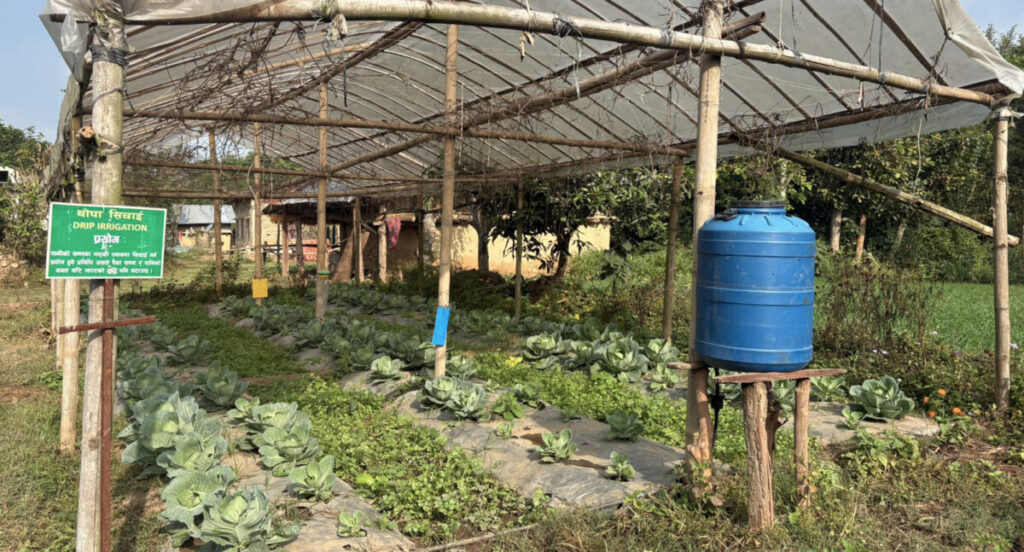
Chandra explained, “The first year was challenging, but over time, we witnessed the benefits. Today, we’ve reduced chemical pesticide use by 85% on our farm. Not only has this improved our income, but it has also ensured our children are better nourished, and we can now afford other essential expenses like education.”
A pivotal moment came when their village was selected for demonstration of a suite of climate-resilient agricultural solutions including ‘Vermi wash’ techniques that they learned in Sikkim, a state in northeastern India, during an exposure visit organised by the International Centre for Integrated Mountain Development (ICIMOD). Vermi wash is extracted as the liquid run-off from vermi-composting pits and contains plant growth hormones, enzymes, and essential nutrients. It acts as a natural pesticide and fertiliser, improving crop health while maintaining ecological balance. This technique is one of the many tools introduced by ICIMOD to ensure that farmers transition smoothly to organic farming.
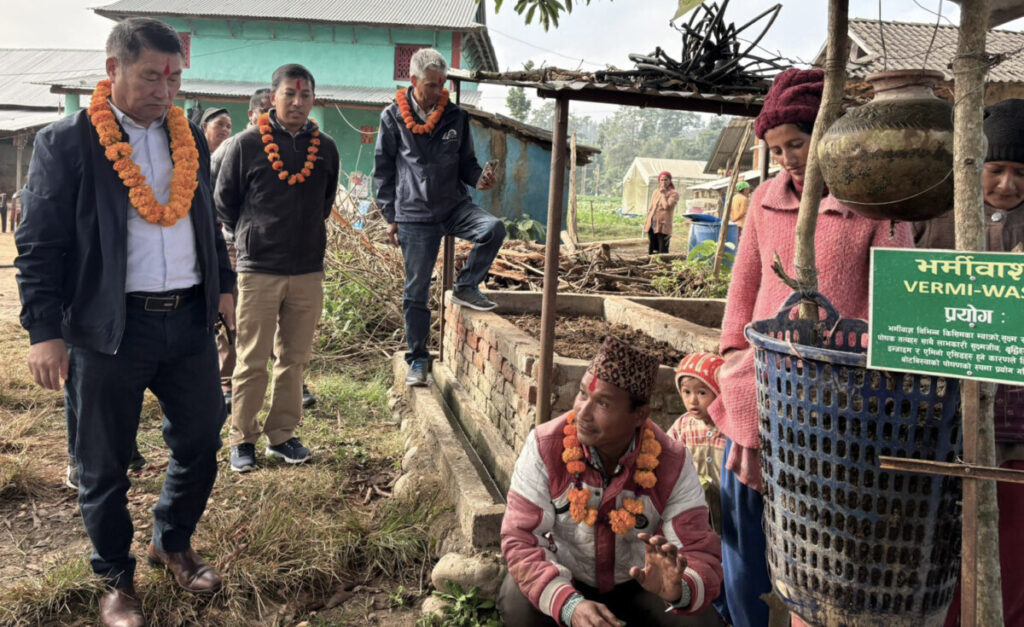
Neighbouring communities and other districts in Karnali have embraced their methods, signalling a regional shift towards sustainable agriculture. “We work for ourselves now, and that gives us peace,” says Tek Bahadur. The farm has become a family endeavour, with their entire household involved, and they hire additional labour when needed, paying fair wages, and offering meals.
ICIMOD’s efforts in Karnali
The GRAPE project, supported by the European Union, the Ministry for Foreign Affairs of Finland, and the Federal Ministry for Economic Cooperation and Development (BMZ), Germany. This project was led by the German development agency, Deutsche Gesellschaft für Internationale Zusammenarbeit (GIZ) with ICIMOD as the lead partner for the collaborative action research component. It aimed to revolutionise agriculture in the Himalayan region. It focuses on promoting organic farming, enhancing soil fertility, and reducing dependency on chemical pesticides and fertilisers. By introducing sustainable techniques like vermi-wash – a liquid bio-fertiliser made from vermicompost – the project empowers farmers to adopt environmentally friendly and cost-effective practices.
The ‘action research’ component of the GRAPE project, led by ICIMOD, concluded in October 2024. Action research emphasises participatory research conducted with, for, and by people. Building on GRAPE’s successful outcomes, ICIMOD is now advancing its work through the Himalayan Resilience Enabling Action Programme (HI-REAP). Part of the Climate Action for Resilience Asia (CARA) initiative of the United Kingdom Foreign, Commonwealth & Development Office (FCDO), HI-REAP is further enhancing capacity while introducing innovative Nature-based Solutions (NbS). NbS are actions which encourage the protection, sustainable management, and restoration of natural or modified ecosystems to address societal challenges while simultaneously supporting human wellbeing and biodiversity benefits. With promising results already demonstrating significant potential to transform agriculture in Nepal and the broader region, ICIMOD’s ongoing efforts under HI-REAP aim to scale these innovations for wider impact.
“We are happy to see that the Ministry of Land Management, Agriculture and Cooperatives (MoLMAC) in Karnali province has mainstreamed the Community Learning Centre (CLC) model and Climate-resilient agriculture (CRA) practices into their annual action plan. This will ensure their integration into broader agricultural policy, planning and practice, creating long-term impact.” — Kamal Aryal, Sustainable Agriculture Specialist at ICIMOD
Challenges and aspirations
While the Gharti brothers have achieved remarkable success, challenges remain. They rely on rented equipment for ploughing and irrigation. Purchasing a motor pump and a small tractor could significantly ease their workload. With annual earnings of NPR 1,200,000–1,500,000 (USD 8,800 – 11,000), they are willing to invest if provided with a 50% subsidy, which they believe is within reach given their farm’s profitability.
Despite these obstacles, their journey is an inspiration for neighbouring communities. Chandra frequently visits the Faculty of Agriculture in Mid West University in Surkhet to share his experiences, encouraging other farmers to adopt organic practices. Their farm has become a model for sustainable agriculture, influencing farmers across Karnali province and beyond.
Alignment with the Karnali Agriculture Development Strategy (KADS)
The Gharti brothers’ climate-resilient agricultural farming journey aligns seamlessly with the Karnali Agriculture Development Strategy (KADS), developed by MoLMAC, which aims to transform agriculture through sustainable practices. As part of a larger vision to propel Karnali towards organic farming, KADS emphasises regenerative agriculture, innovative technology, and community empowerment.
The draft version of KADS was presented at a recent workshop in Surkhet in the presence of Honourable Ministers of Karnali Province, including Honourable Minister Mr Binod Kumar Shah, Ministry of Land Management, Agriculture and Cooperative; Honourable Minister, Mr Rajeev Bikram Shah, Ministry of Economic Affairs and Planning; Honourable Minister, Mr Ghanashyam Bhandari, Ministry of Social Development; Honourable Minister Ms Bijaya Budda, Ministry of Water Resource and Energy Development; Honourable State Minister Ms Gamata BK, Ministry of State for Physical Infrastructure and Urban Development; Honourable Suryanath Yogi, Vice-Chair of Karnali Province Planning Commission; Dr Chudamani Paudel, Chief Secretary of Karnali Province.
At the workshop, the Director General of ICIMOD, Dr Pema Gyamtsho remarked, “This comprehensive strategy provides a clear roadmap to address the overwhelming challenges of climate change and youth out-migration. Nepal, with its abundant natural and human resources, has the potential to transform agriculture into a cornerstone of development, reversing the trend of youth seeking opportunities abroad. Achieving this vision requires inter-ministerial coordination, regenerative farming practices, and addressing challenges like pests through sustainable methods.
Key priorities include securing financial resources, strengthening institutions, and leveraging technology like agro-ecological zoning. ICIMOD is committed to supporting these efforts, but success will depend on collaboration among governments, communities, and partners. By working together, we can create sustainable growth and opportunities for future generations.”
Hon. Minister Rajeev Bikram Shah, Ministry of Economic Affairs and Planning added, “We need to reignite a sense of pride in being a farmer. Our fathers were farmers, yet we often find ourselves moving away from agriculture. However, there is hope – our youth are beginning to return to farming, even taking the initiative to expand agricultural lands. This trend is a testament to their resilience and potential, and it is our duty to support and encourage them in transforming agriculture into a viable and dignified livelihood”.
A movement rooted in pride
The story of Chandra and Tek Bahadur Gharti is not just about farming – it is about reclaiming dignity, fostering independence, and building a sustainable future. Their farm stands as a beacon of hope for a region seeking to balance tradition with innovation.
Through the combined efforts of strategies like KADS, initiatives like GRAPE, and the resilience of farmers, Karnali has the potential to become a hub for regenerative agriculture. As the Gharti brothers demonstrate, with the right support, the land can provide not just sustenance but also prosperity and pride.
The journey to transform Karnali is underway, and with inspiring stories like these, the future looks promising. Together, policymakers, institutions, and farmers can ensure that agriculture becomes a cornerstone of sustainable development in Nepal.
The Gharti brothers have not only revolutionised their farm but also ignited hope across Karnali. Their story is a testament to the transformative power of local commitment, innovative strategies like KADS, and the potential of agriculture to restore dignity and prosperity to communities.
As the Gharti brothers put it, “When we farm our own land, we work with pride and dignity. This is the life we always wanted.”
Author
-

Shivani is ICIMOD’s Communications and Public Relations Specialist. The International Centre for Integrated Mountain Development (ICIMOD) is an intergovernmental knowledge and learning centre working on behalf of the people of the Hindu Kush Himalaya countries. She took up this role in 2024. She has nearly two decades of experience in the communications sector with a career spanning television journalism and development sector work. She has worked for NDTV, CNN-IBN, News X in India, and Kantipur Television in Nepal, initially as an editor and producer before progressing to become a Television Host/News Anchor.

